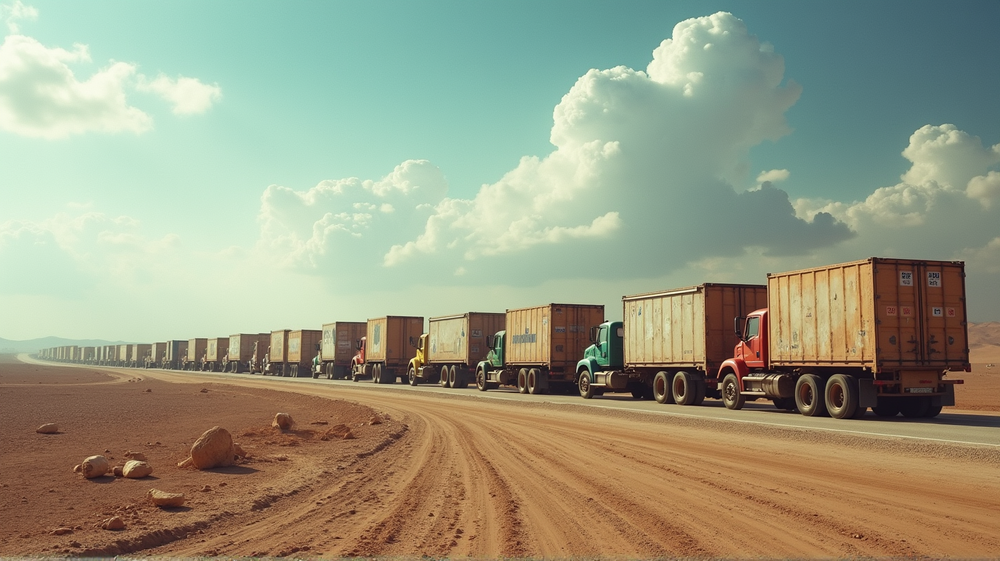The humanitarian crisis in Gaza has reached a critical point with over 6,000 aid trucks full of essential food and supplies stranded at the borders of Jordan and Egypt. These trucks, awaiting clearance to enter Gaza, symbolize a broader geopolitical stalemate. According to the UN agency for Palestinian refugees, the restrictions imposed by Israel have only exacerbated the dire circumstances faced by the civilian population.
The Waiting Game: Trucks Stalled at Border
It is a distressing scene as long lines of trucks filled with life-saving supplies stand idle. Time ticks away while political disagreements prolong the suffering of millions; a situation crying out for compassion and decisive action. Philippe Lazzarini, the chief of the UN agency for Palestinian refugees, highlights the challenges as thousands remain on the brink of starvation. According to his statements, driving aid directly into the region is not only more efficient but fundamentally more humane for the people desperately awaiting relief.
Beyond Airdrops: The Question of Dignity
In the face of a siege that has crippled daily life, Lazzarini urges global leaders to prioritize human dignity over complex logistics, stating that “airdrops will not reverse the deepening starvation.” The plea is for open gates and safe passage to prevent further escalation of what is now termed as “manmade hunger.” As the United Nations calls for international intervention, the focus shifts to what political will can achieve if aligned with humanitarian principles.
Challenges and Accusations: Aid under Scrutiny
Accusations have arisen regarding the misuse of aid supplies, particularly concerning diversions to militant groups — a narrative often used to justify stringent controls. However, a recent USAID study shatters these claims, confirming no systematic theft of humanitarian aid by Hamas. Despite heavy rhetoric, the need for unhindered operations for UN agencies like UNRWA is evident.
The Cost of Conflict: Lives and Legacies
The impact is not solely logistical but deeply personal, affecting thousands of innocent civilians. In the ongoing controversy, livid survivors recount personal losses, and there is growing criticism of the means used by Israel to maintain control over the region. Allegations abound, with the International Court of Justice currently reviewing cases against Israeli leadership, highlighting a persistent struggle for power at the cost of human lives.
A Call to Action: Redefining Support
The call from global agencies is clear: remove bureaucratic roadblocks and facilitate an unobstructed flow of aid to those in desperate need. The harrowing stories from Gaza speak of more than statistics — they are cries for empathy and courage in solving one of the world’s most persistent humanitarian crises. It remains critical that the international community unites to forge pathways to peace and sustenance.
This war-torn region, clothed in despair, awaits its chance to grasp hope and resiliency. As stated in Middle East Monitor, the world stands at a juncture: witnessing the agony, or crafting a future where relief no longer pauses at borders but reaches those it is meant to save.












